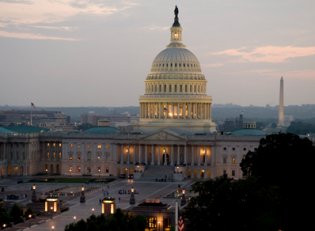
The Three Stooges are back. The Sheldon Adelson-backed Restoration of America’s Wire Act (RAWA) bill has been reintroduced in the House of Representatives by Rep. Jason Chaffetz (R – Utah), the same person who introduced it in 2014. Senator Lindsey Graham (R – S.C.) introduced a twin bill in the Senate last year, and while he has yet to do so in 2015, it would not be at all surprising if he did. Online gambling has clearly been on his mind recently, as evidenced by his questioning of Attorney General nominee Loretta Lynch on the subject in late January.
RAWA is the continuation of Las Vegas Sands Corp. CEO Sheldon Adelson’s crusade against online gambling. He has vowed to do “whatever it takes” to end the industry in the United States and seems determined to control as many politicians as he can to force his will on the American people. The name of the bill is actually quite misleading, as it would not “restore” the Interstate Wire Act to 1961 to any sort of previous state, but rather change it to codify a prior incorrect interpretation of the law. The Wire Act clearly states that sports betting over wire communications is prohibited, not other types of gambling (nobody really argues that “wire communication” shouldn’t include the internet, even though there was no internet in 1961). Here is the relevant text of the Act (emphasis added):
Whoever being engaged in the business of betting or wagering knowingly uses a wire communication facility for the transmission in interstate or foreign commerce of bets or wagers or information assisting in the placing of bets or wagers on any sporting event or contest, or for the transmission of a wire communication which entitles the recipient to receive money or credit as a result of bets or wagers, or for information assisting in the placing of bets or wagers, shall be fined under this title or imprisoned not more than two years, or both.
When internet gambling started gaining steam in the late 1990’s and into the 2000’s, the Department of Justice, for whatever reason, interpreted the Wire Act to include all online gambling. Around Christmas 2011, though the DoJ clarified its stance on the Wire Act, saying that it only applied to sports betting over the internet, not other forms of gambling like poker. That prompted some states to begin the process of legalizing and regulating intrastate online gambling and to date, Nevada, Delaware, and New Jersey have online gambling industries.
Adelson hates online gambling, seeing it (incorrectly) as a threat to his gigantic land-based gaming business, so that DoJ clarification really grinded his gears. That’s where RAWA comes in. He wants the old interpretation of the Wire Act to be put back in place by actually changing the Wire Act to reflect his desires. RAWA would amend the Wire Act to change the reference to sports betting to all betting, change mentioned of “bets or wagers” to “any bets or wagers,” and to make sure it is clear that wire communication includes the internet.
If the RAWA were to ever become law, the online gambling regimes in Nevada, Delaware, and New Jersey would all become illegal, as would online lottery ticket sales, which are currently legal in a few states. There are carveouts for online horse racing gambling and online fantasy sports.
In a press release, John Pappas, Executive Director of the Poker Players Alliance, came out strongly against Adelson, Chaffetz, and RAWA, saying, “Every Congress to consider internet gaming legislation has preserved the right of states to protect its citizens through a system that is accountable to regulators and the government. Attempting to re-write history through a piece of legislation that prohibits states from enacting these safeguards represents the worst kind of crony capitalism that favors a mega political campaign donor over what’s in the best interest of the states and their consumers.”
Despite outrageous claims made by opponents of state regulated internet gaming, it has not led to the downfall of Western society,” he added. “In fact, to date there has not been a single documented case of a minor playing on any of these state regulated sites and no report of people wagering on a regulated website that is not authorized in their state. Finally, claims that regulated internet gaming is a conduit for money laundering and terrorist financing are completely false and have no backing in the real world. At best these claims are fear-mongering, at worst they are outright deception.”



















What happened to individual freedom Chaffetz? I don’t even play poker anymore but was shocked when I saw his name. And I hear he wants to give public sector raises? Looks like we lost another one to the grubby bureaucracy hands